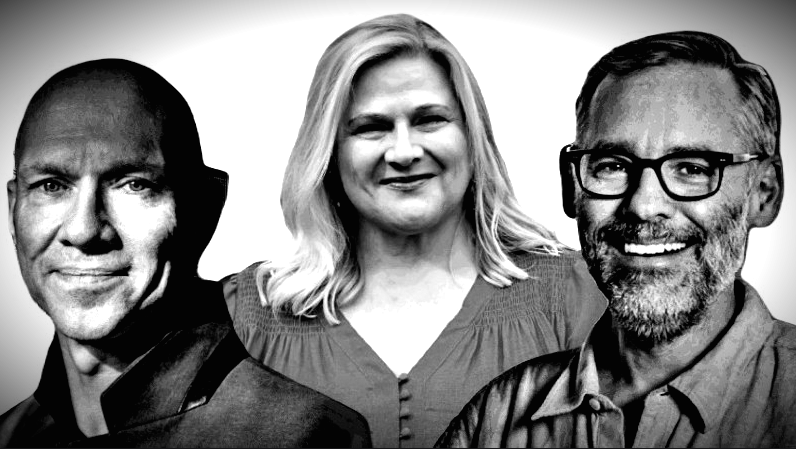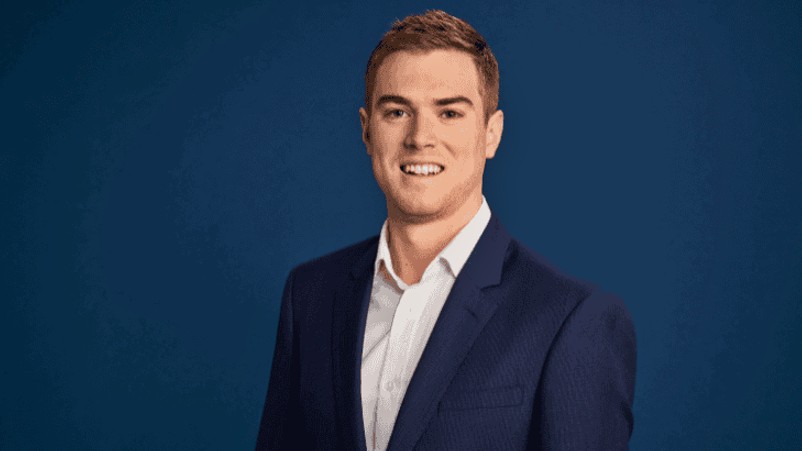Agency CEOs and marketing chiefs: 20-somethings need to get over title-promotion obsessions, go broader, deeper

Media by Mother boss Dave Gaines, AMI chief Bronwyn Powell and Gale CEO Brad Simms: Think laterally and make lateral moves; upskill before asking for that promotion; hone creative problem solving skills.
The marketing supply chain’s talent pool – media and creative agency workers – is too focused on promotion and job titles versus capability, leading to over-promotion of under-equipped talent, particularly at the mid-tier. Brand-side marketing risks falling into the same trap of narrow specialism and short-termism at the expense of the big picture warn marketing and customer chiefs. Here's how marketing and agency bosses are trying to help – not crimp – those aiming to ultimately usurp them.
What you need to know:
- The marketing supply chain’s talent pool – media and creative agency workers – is too focused on promotion and job titles versus capability, leading to over-promotion of under-equipped talent, particularly at the mid-tier.
- Marketing chiefs fear parallel issues: Narrow specialisms crimping career options and future talent pool as CMO remits explode. Breadth of experience is key, but lacking, particularly in areas like strategy and commercial nous.
- Agency bosses incentivising broader learning and communications upskilling, creating transparent capability frameworks to show staff what it takes to earn promotion, as well as mandating cross-disciplinary hot desking.
- Marketing bodies like AMI urging both marketers and agency staffers and execs to take responsibility for broader capability.
In their mind, they're like, ‘Well, I've been in this role for six months’. [But now we can say] ‘no, go and look at the competency matrix’. Everyone can see it. So when we created that tool the conversation changed – and we created it because I was confused as fuck why everyone wanted to be promoted. ‘Well, did you develop any new skills?’ Now we have transparency about what it takes to progress.
Call it what you want
The marketing supply chain’s talent pool – media and creative agency workers – is too focused on promotion and job titles versus capability, leading to over-promotion of under-equipped talent, particularly at the mid-tier.
That’s the view of US full service agency CEO Brad Simms, boss of Gale, and Dave Gaines, CEO of indy hot-shop Media by Mother – and the complaint rings true locally.
Last year’s Media Federation of Australia data showed agency employee tenure collapsed by almost a third in just 12 months to 2.5 years. The MFA cited “the global talent shortage and people being promoted too early”.
Which implies there’s an army of twenty-something agency directors likely lacking the requisite skills, know-how and experience to drive sustainable growth both for clients and their own careers.
Simms said Gale, part of the global Stagwell Group, has overhauled its job title structure in a bid to tackle the problem.
“One of the biggest challenges that we went through about three years ago was our retitling structure,” Simms recently told Mi3. “A bit of the challenge is you have someone in a media agency, for example, they have been there for eight years and they are an SVP [senior vice president], because they've been promoted by title but not by pay: ‘They’ve got to have a new role, let’s give them a new role!’.
“What we needed to do was bring that down to parity, so that when you are a director, whether on the media or consulting side, that actually means something. But that was a real pain in the ass conversation to have,” said Simms.
“So this title re-baselining was a huge thing. [But it means] that when a client deals with Gale, if they get a director, whether it's a creative director, whether it's a director on the media side, whether it's an influencer [expert], whether it's consulting, they know what a director stands for, it has a standard view. And that's not the same title structure as in the [rest of] industry.”
Simms suggests agency execs should focus less on job titles, more on the the end game.
“You need to be excellent at what you do, and less concerned about what you're called, frankly. Its capabilities.”
In fairness, he thinks the best talent tends to have that mindset baked-in.
“There is an alignment between folks that don't care about their titles and folks that are unbelievably high performers, because they are passionate about the work. They're curious. They're creative and they want to be challenged. It's not 100 per cent [applicable across the piste] and definitely there's some generational components to it, but … they just consume the interesting work. They want to be paid appropriately, but whether they're called this or that, as long as they're seeing career trajectory, and it's transparent to them – which is a big thing at scale – then I think you find the right people that are motivated by the right things.”
We’re not creating an agency of Jacks of all trades, but every three months everybody moves seat. If you're in a social role, you sit next to somebody who's in a search role, or you sit next to somebody who's an analyst or somebody's a programmatic strategist. So you're constantly on the job learning because you're being exposed to a different perspective on the work than if you just sat in your own little vacuum.
Too much, too soon?
Simms thinks there is “100 per cent” a shift in generational expectations of rapid career advancement without necessarily doing the hard disciplinary yards. Hence creating Gale’s “competency matrix”.
He describes it as a “giant Excel” spreadsheet that “basically has every domain and role title and what it takes to move between the two of them – because we were having this whack conversation with this generational disconnect where folks were like, ‘no, I want to be promoted.’ But they weren’t clear on what it took to be promoted. So we made what it takes to move between levels 100 per cent transparent,” said Simms.
“Because in their mind, they're like, ‘Well, I've been in this role for six months’. [But now we can say] ‘no, go and look at the competency matrix’. Everyone can see it. So when we created that tool the conversation changed – and we created it because I was confused as hell why everyone wanted to be promoted. ‘Well, did you develop any new skills?’ Now we have transparency about what it takes to progress,” Simms added. “It’s not 100 per cent [there] but it’s better than what we had before.”
T-shaped to win
Dave Gaines, CEO at Media by Mother and a former GroupM global exec, KPIs staff to read, listen and learn outside of their remits to better grasp the bigger picture. If they do, they get up to 15 per cent more salary. If they don’t, “there are plenty of other places they can work,” Gaines recently told Mi3.
But the former Maxus boss thinks media agencies in the US are in a worse state than Australia when it comes to narrow swim lanes, particularly when it comes to strategic capability.
“We've kind of wedged ourselves into this silo thinking,” per Gaines, with specialists in his experience either unprepared or unwilling to break out. “It’s a lot easier to say no [to broader learning and capability] because someone’s still going to pay you a shit tonne of cash for doing what you do.”
Alongside broader technical and strategic skillsets, Gaines thinks communication skills are equally critical: Know more and articulate it better. He said Media by Mother is attempting to address both aspects – and recently sent his entire team on a communications course, followed up by “taking everybody out to a comedy club and making them do an open mic session so they could stand up and present”.
How did it go?
“Really well. I don't think anybody's going to say ‘shit, this is my calling, I need to throw away media and go be a comedian’. But nonetheless, it helped them get to grips with communicating a little better.”
But Gaines underlines a crucial point: email has become the dominant form of business communication and emerging talent, particularly since Covid, risk underdevelopment in the art of articulation.
“That is exactly what I am trying to tackle. I don’t believe they want to do that [rely on written comms versus verbal]. I think it is a confidence thing – they don't go out of the weekend and sit at the bar with their friends and just communicate via email. It’s because we've created a very, very siloed environment where people don't know enough about enough things in order to communicate confidently and talk with confidence … and it’s become quite confronting.”
Media by Mother is trying to kill two birds with one stone: create T-shaped staff and get them talking.
“We’re not creating an agency of Jacks of all trades, but every three months everybody moves seat,” said Gaines. “If you're in a social role, you sit next to somebody who's in a search role, or you sit next to somebody who's an analyst or somebody's a programmatic strategist. So you're constantly on the job learning because you're being exposed to a different perspective on the work and what needs to be done than if you just sat in your own little vacuum.”
The approach is paying off.
“I do see that ability to be able to finish other people's sentences when the guys are in a room together and they're talking to a client … everybody's beginning to be able to finish each other's sentences,” per Gaines. “They have some context for what they do and consequently, we're a bit more considerate for the way everything works. It's actually sped up the way everybody works too.”
Think laterally and make lateral moves.
Broad or bust
Marketing is facing the same kind of challenges – with overspecialisation coming at the expense of fundamentals like strategy and commercial nous. Expanding remits compound the challenge. But top marketers like Lion’s Chief Growth Officer Anhuba Sahasrabuddhe – who has effectively taken on the CIO, CTO, and CDO remit, as well as responsibility for strategy, innovation and marketing – reckon narrow specialisms won’t cut it, especially for those aiming to get to the top of the corporate tree.
Stuart Tucker, outgoing Chief Customer Officer at Hipages, holds pretty much the same view. "My advice to any young marketer is to get as much breadth of experience as possible ... “I think there's plenty of ambition, but they are probably a little naïve in terms of the pathway,” per Tucker. “Sometimes you have to move sideways to go up – coupled with some discretionary effort, the notion of curiosity, challenging things – and I’m not sure that’s always understood.”
That doesn’t mean trying to master everything, “because we’ll never keep pace with [all] emergent capabilities,” but being sufficiently “across” a wide range of meaningful capabilities at a high level, as Lion's Sahasrabuddhe told Mi3.
Senior marketers at the likes of ANZ, Deloitte and Destination NSW agree. Hence backing the Australian Marketing Institute’s drive to future-proof marketing’s skill set across 25 essential competencies in five critical areas: Insights, customer experience, strategy, brand and digital.
The competency framework and accreditation program is open to agency execs as well as marketers, according to AMI CEO Bronwyn Powell. Her advice to marketing and agency execs keen to avoid getting trapped in a narrow swim lane?
“Think laterally and make lateral moves.”


